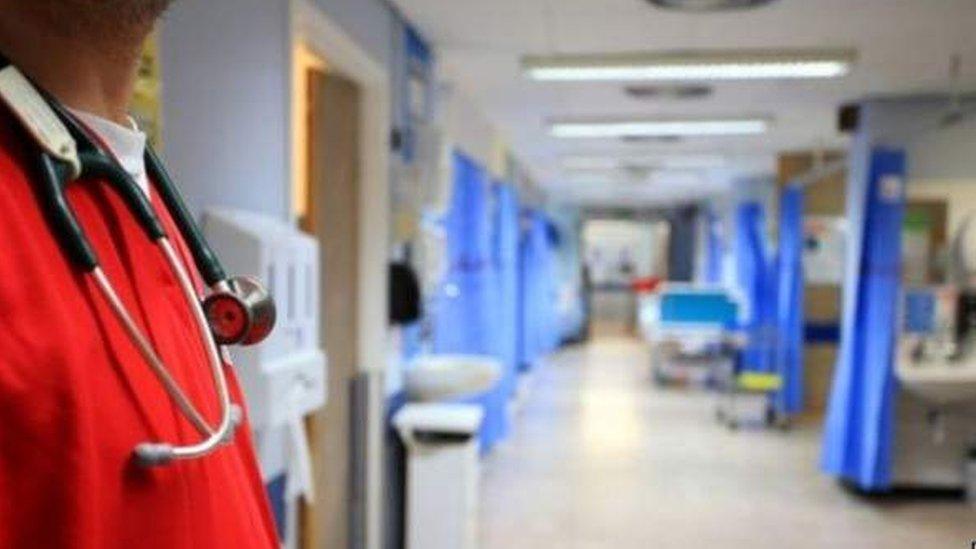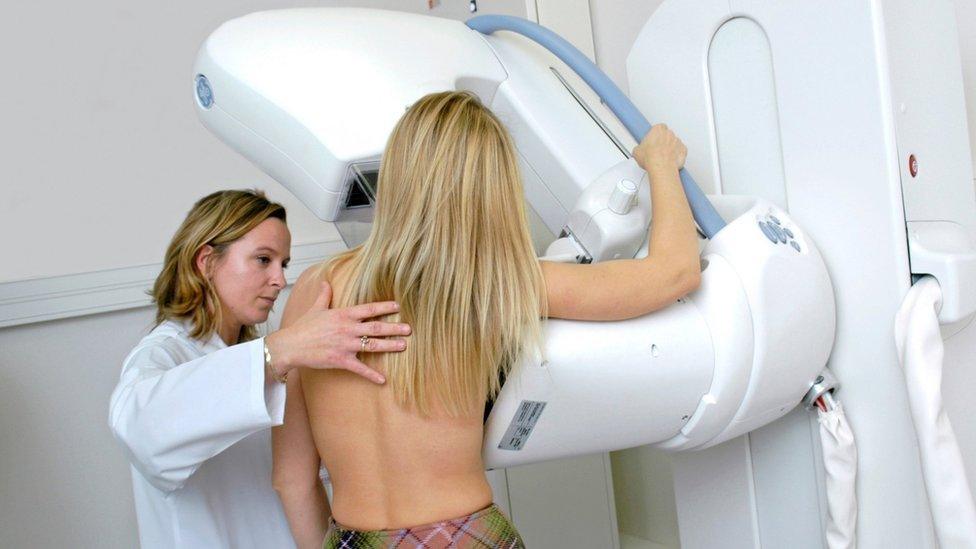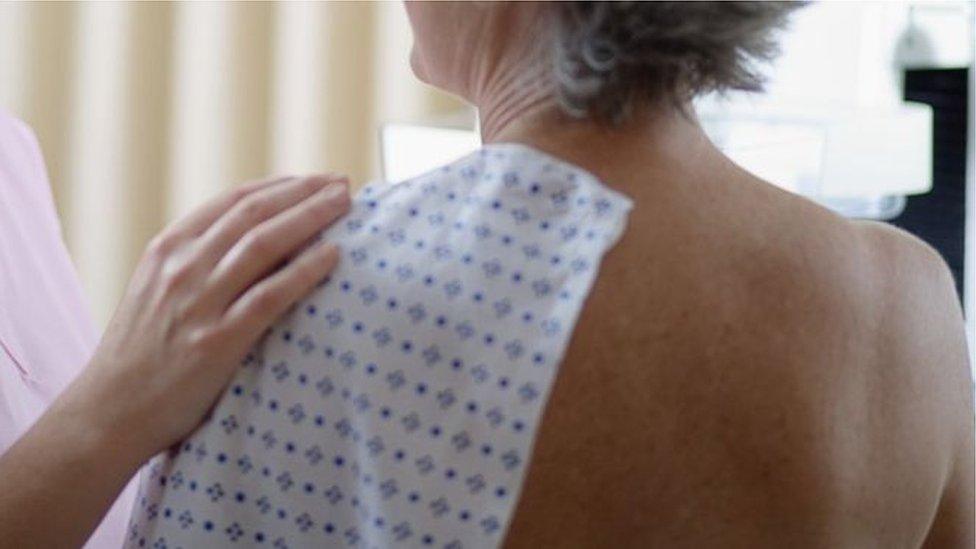NI political impasse 'stalling vital health decisions'
- Published

Hospital waiting lists, mental health and fatal foetal abnormality are among the issues left in limbo
A number of health organisations have warned the continuing political impasse is preventing vital health and social care decisions being made.
Hospital waiting lists, mental health and abortion are some of the issues which have been left in limbo.
While the health and social care wheel keeps on turning, at what speed and how much distance it can cover depends entirely on its budget and leadership.
Northern Ireland has neither at present.
While in the run-up to the election, former health minister Michelle O'Neill published an elective care plan to tackle waiting lists, it had assigned just £31m, which was only earmarked for those waiting more than 52 weeks.
With neither a budget nor an executive in place, many saw the plan as simply academic.
The biggest problem for the health service at present is spiralling hospital waiting lists, which are growing by 1,000 people each month, on average.
Cancer referrals
Across the UK a ministerial target states that at least 95% of patients who are urgently referred with suspected cancer should begin treatment within 62 days. While the target is the same for the regions, performance varies.

In Northern Ireland the target is met in just 70% of cases
In England that figure sits at 82%, Scotland 90% while in Wales around 85% of patients are seen within 62 days.
In Northern Ireland, however, the target is met in just 70% of cases.
"Recently there has been a real understanding that it's not acceptable and that we need a strategy in place in order to address this going forward," said Macmillan Cancer Support's Heather Monteverde.
"Progress was being made before Christmas but now with no government, no budget or no strategy it is extremely worrying."
Part of the problem was that unlike the other regions, Northern Ireland does not have a cancer strategy, she said.
Depression and anxiety
Before the collapse of Stormont, momentum had also been gathering around tackling mental health.

It is estimated that an additional 300 staff are required to meet the demand
Last October, the BBC revealed none of the five health trusts were meeting their waiting time target for treating people with depression and anxiety - in the past three years there has been a 76% rise in the number of cases waiting.
It is estimated that an additional 300 staff are required to meet the demand.
The Royal College of Psychiatrists told the BBC it was encouraged that the former health minister had begun her tenure making mental health a priority.
However, according to its chairman, Gerry Lynch, that momentum and sense of hope is now gone.
"There is a deep sense of frustration among psychiatrists and mental health workers because we have worked with the community and voluntary sector and because of political instability we aren't in a position to deliver," he said.
Fatal foetal abnormality
Other decisions being left in limbo include the possibility of reforming abortion law, including around fatal foetal abnormality or life-limiting conditions.

The future role and funding for GPs is potentially in jeopardy and a minister and budget is required to sign off on all these matters
Although no decisions had been taken on making any change to the law, many say the setting up of a working group on FFA had marked a change of mood.
Before the collapse of the power-sharing government, the FFA Group's report made it onto the desks of the justice and health ministers; it had also been seen by the executive and former first minister Arlene Foster said their plan was to publish the document after it had been considered by the Executive.
Momentum on that, according to some, is now also gone.
The chairwoman of the Royal College of Obstetricians and Gynaecologists in NI, Carolyn Bailie, who was among those advising the group, said stalling the process was frustrating.
"Whether we go back to the power sharing executive and if that happens with a change in the balance of seats that might just impact on what happens next," she said.
"But if we go to direct rule, well I just don't know then what will happen with it all."
GP funding
The state of domiciliary care is, at the very least, fragile, as are future decisions around the delivery of physiotherapy and the consultation on where exactly stroke services will be delivered.
The future role and funding of GPs is potentially in jeopardy and a minister and budget is required to sign off on all these matters.
For the sake of health and social care, few could argue that rebooting Stormont must become a priority for all of those involved in the ongoing political talks.
- Published4 October 2016

- Published25 February 2016
